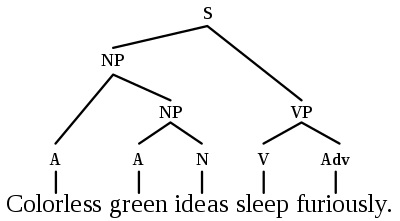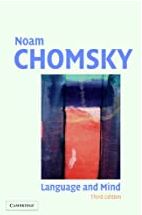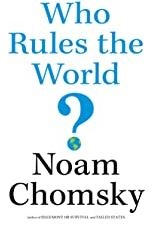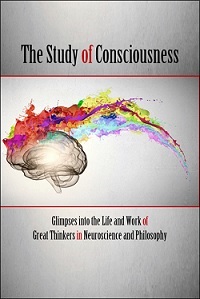|
TRANSLATE THIS ARTICLE
Integral World: Exploring Theories of Everything
An independent forum for a critical discussion of the integral philosophy of Ken Wilber
 David Christopher Lane, Ph.D.
Professor of Philosophy, Mt. San Antonio College Lecturer in Religious Studies, California State University, Long Beach Author of Exposing Cults: When the Skeptical Mind Confronts the Mystical (New York and London: Garland Publishers, 1994) and The Radhasoami Tradition: A Critical History of Guru Succession (New York and London: Garland Publishers, 1992). David Christopher Lane, Ph.D.
Professor of Philosophy, Mt. San Antonio College Lecturer in Religious Studies, California State University, Long Beach Author of Exposing Cults: When the Skeptical Mind Confronts the Mystical (New York and London: Garland Publishers, 1994) and The Radhasoami Tradition: A Critical History of Guru Succession (New York and London: Garland Publishers, 1992).
THE STUDY OF CONSCIOUSNESS
Glimpses into the Life and Work of Great Thinkers in Neuroscience and Philosophy
Chalmers |
Changeux |
Chomsky |
Churchland, Paul |
Churchland, Patricia |
Crick |
Dennett |
Edelman |
Flanagan |
Humphrey |
Huxley |
Koch |
Leary |
Lilly |
McKenna |
Nagel |
Tononi
Noam ChomskyFaizaan MerchantNoam Chomsky was born in Philadelphia, Pennsylvania on December 7, 1928, to two distinguished Hebrew scholars. Growing up in the Jewish community, Chomsky was exposed to left Zionist politics at a young age. He would often visit bookstores in New York City, voraciously reading about left-wing and anarchist politics. During his adolescent years, Chomsky identified as an anarchist and wrote a paper on the spread of fascism in Spain. Chomsky attended Oak Lane Country Day School and later Central High School, where he became dissatisfied with their strict teaching methods. Noam Chomsky At the age of 16, Chomsky began studying at the University of Pennsylvania where he studied a variety of subjects, eventually becoming interested in Arabic. His experience there made him hesitant about pursuing a career within academia, but after being introduced to theoretical linguistics by Zellig Harris, one of the fathers of structural linguistics, he reconsidered and received both his Bachelor's and Master's degree in Linguistics from the University of Pennsylvania. He applied Harris's systems of language in his master's thesis, titled Morphophonemics of Modern Hebrew, which was later turned into a book. After receiving his Master's degree, he went on to join the Harvard Society of Fellows as a junior fellow. Here, much of Chomsky's work on structural linguistics was done. In 1952, Chomsky's first academic article, “Systems of Syntactic Analysis,” appeared in The Journal of Symbolic Logic. Thereafter, he submitted a thesis on transformational grammar called The Logical Structure of Linguistic Theory to the University of Pennsylvania, receiving a Doctor of Philosophy degree because of it in 1955. That year, he also started an associate professor position at MIT, where he began working on a mechanical translation project while teaching linguistics and philosophy. He published his first book, Syntactic Structures, in 1957; it was later considered to be one of the most revolutionary books within the scientific study of language. Chomsky continued writing a number of books on generative grammar, eventually publishing Language and Mind, a compilation of lectures he gave at the University of California, Berkeley, in 1968. He also took part in the “Linguistics Wars”, a number of intellectual debates on the philosophy of language itself.  A tree diagram of the sentence "Colorless green ideas sleep furiously". Meaningless, but grammatically correct.
In the early 1960s Chomsky joined activists in the antiwar protests of the Vietnam War, denouncing the involvement of the USA in his 1967 critique, The Responsibility of Intellectuals. As a political dissident and participant in persistent, left-wing activism, he was placed on Richard Nixon's master list of political opponents. Throughout the years, Chomsky has continued to speak up about what he believes in when it comes to political matters, critiquing various decisions of the government. In 2002, Chomsky retired from MIT, focusing his efforts on social issues regarding Turkey's Kurds and the abolishment of nuclear weapons from the world. He currently teaches linguistics at the University of Arizona, a position he received in 2017. Noam Chomsky is known for a few, very important theories that have become foundational within the modern fields of linguistics, psychology, and even computer science among many others. Chomsky began his intellectual career with a review of a book called Verbal Behavior by B.F. Skinner, a behavioral psychologist. In his critique, Chomsky attacked one of the main tenets of the book, behaviorism. At the time it was written, behaviorism was a widely accepted belief which explained that human behavior, such as talking or thinking, was learned through mimicking the actions of other humans. Children were considered to be “blank slates” who learned directly through their environments and interactions with other human beings. Chomsky took a different stance. In his critique, he stated that there are some elements of the structure of language which are inherent to humans. He believed that through evolution and genetic inheritance, this inherent knowledge of language structure had been passed down, differing vastly from other animals and their modes of communication. This belief brought us to what we know today as Chomsky's universal grammar theory.
This theory begins by maintaining the belief that children are born with an inherent sense of syntactic knowledge of language. This innate knowledge slowly unravels itself as one begins to experience human interaction within their external environment. Elements of native language blend with the innate syntactic knowledge to create the languages we speak today. Chomsky compares this feature of humans to other animals; discovering that no other animal can understand and acquire language as humans can. He goes on to conclude that humans must have a “language acquisition device” that no other animal possesses. Chomsky believes this to be true due to the “poverty of stimulus” argument. This argument states that it would be impossible for children to learn all the features of language with the small amount of data they receive when actually learning. It's then inferred that there must be some inherent information within the human mind at birth, which builds upon the external features of native languages. If we assume this, then there must be some knowledge of language that we as humans share within our minds. The question then becomes, what is this universal knowledge? What does it consist of? What are its limits and parameters? These questions have not been answered and the goal is to find universal constraints and abilities of language that allow us to figure out this innate, syntactic structure of language within our minds. When this goal has been achieved, we will begin to understand what “universal grammar” really is. In terms of the current research on consciousness, Chomsky takes a more pessimistic view on the search for a theory. He doesn't necessarily believe that researchers will be able to come up with a theory of consciousness that is completely intelligible to humans. In addition, he believes that understanding the brain technically through the neuroscience may not be the best way to go about searching for an explanation of consciousness. During a presentation Chomsky gave at the Science of Consciousness conference in Tucson, Arizona in 2018, he compared neuroscience to a marionette, explaining that the field is currently exploring the puppet and its strings, rather than the puppeteer itself.[1] Although he has a gloomy outlook on the future of consciousness research, Chomsky's theories within linguistics have affected the study of consciousness in a major way. Today, Chomsky spends most of his time focused on politics, but his groundbreaking work has changed the way we view the brain and its inception at birth. NOTES[1] Tom Bartlett, "Has Consciousness Lost Its Mind?", The Chronicle of Higher Education, June 6, 2018. FUTHER READING1. Manufacturing Consent: The Political Economy of the Mass Media, Pantheon; Reprint edition (January 15, 2002) 2. Language and Mind, Cambridge University Press; 3 edition (January 30, 2006) 3. Who Rules the World?, Hamish Hamilton Ltd (2016)    MSAC PHILOSOPHY GROUP
Human interest in the nature of consciousness dates far back to our ancestral past. However, it is only in the last century or so that researchers and philosophers have been able to tackle the problem in a more scientific way. This is primarily due to our increasing understanding of human physiology and how our brain functions. With the advent of ever more sophisticated technology—from fMRI scans, functional magnetic resonance imaging, to DARPA's neural engineering program, understanding neural “dust”—we are now able to not only create vivid simulations of cerebral activity but also to systematically reverse engineer the brain. Whether such empirical observations will unlock the secrets of self-reflective awareness is still open to vigorous debate. Nevertheless, the study of consciousness is now considered to be of elemental importance and has invited a large number of brilliant thinkers— from a wide range of disciplines, including mathematicians, quantum physicists, neuroscientists, and philosophers—to join in the discussions and offer their own contributions. The following essays briefly explore the life and work of pioneers in the field of consciousness studies. Included in this eclectic mix are such notables as Giulio Tononi (University of Wisconsin), Paul and Patricia Churchland (University of California, San Diego), Noam Chomsky (M.I.T.), the late Timothy Leary and Terence McKenna, and Jean Pierre Changeux (Collége de France) among others.
Comment Form is loading comments...
|